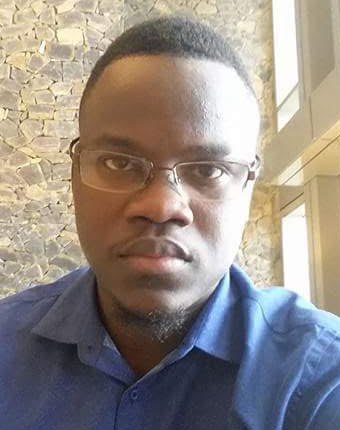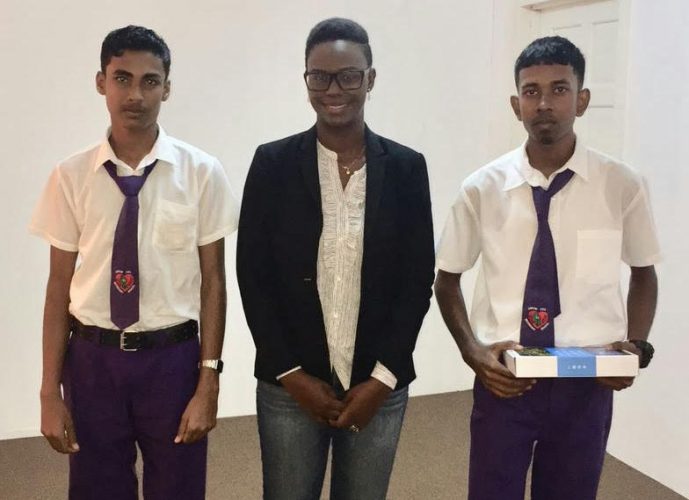The State Assets Recovery Agency (SARA) has started an anti-corruption campaign in order to encourage reporting of corrupt activities to the body.
“The approach of the campaign is to bring awareness and to change the culture and narrative of corruption,” SARA’s Media Communications Officer Clayton Halley told Sunday Stabroek recently, while noting that in addition to government agencies, school-aged children at the primary and secondary levels are among the groups that will be targeted.
Halley said that the idea of the campaign, dubbed ‘Corruption is everybody’s business,’ is for those in the target groups to spot corrupt activities and report same to the agency.

SARA’s Director Professor Clive Thomas explained that in addition to the recovery of state assets, the agency also has to develop and mount a broad platform for anti-corruption activities in the country and to promote transparency and accountability in the use and treatment of all type of state assets. “So our primary mission is not just over the long run to collect stolen property but [also] to prevent ultimately the theft of such property so it becomes less and less a problem,” he said.
Thomas said that in confronting this issue, the agency has to promote the anti-corruption platform, which will be achieved through a working relationship with other agencies. “We can’t do it alone. The [UN] convention [against corruption] states that clearly and because of that we have to work with certain international bodies like the United Nations Stolen Assets Recovery [Initiative],” he noted.
As a member of the international anti-money laundering architecture, Guyana has to fulfill a number of obligations, Thomas added, while noting that the agency is presently making efforts to broaden the anti-corruption dialogue here.

According to Halley, SARA will be using social media and partnering with several anti-corruption agencies to ensure that the campaign has a wide reach and that the population gets as much information as possible on the subject.
The campaign, he explained, began in the first month of the year with the launch of the essay competition in secondary schools, which concluded on February 7th.
Nila Shamsundar, a student of Skeldon Line Path Secondary, was declared the winner, while Abram Zuil Secondary School students Renaldo Naraine and Ravendra Singh copped the second and third places, respectively.
Halley said that in executing the plan to target schools, SARA partnered with the Ministry of Education. However, private schools were not contacted about the competition and therefore the agency will plan a formal engagement with them.
Halley also said efforts are being made to develop an animated programme developed by United Nations Office of Drugs and Crime for primary schools.
On Mashramani Day, the agency held a workshop with members of the Guyana Police Force. Based on a request, similar sessions will be held with the police as well as with other agencies.
Halley said soon a ‘Citizens against corruption report card’ will be placed on the agency’s Facebook page (SARA Guyana), which would allow persons to report suspected acts of corruption. He said that those reports, which may have nothing to do with SARA, will be forwarded to the relevant agencies.
Tentatively, on April 20th, SARA will be holding a ‘Walk against corruption’ event along the Camp Street avenue, stretching from Church Street to Lamaha Street. Aside from anti-corruption signs and messages placed at strategic points along the avenue, the agency’s partners, inclusive of the Financial Intelligence Unit, the Guyana Revenue Authority, the Special Organised Crime Unit and the Bank of Guyana, will have information tents set up.
SARA, Halley also said, is also looking to train persons to be anti-corruption ambassadors and focus will be placed in particular on Abram Zuil Secondary School. The 60 essays submitted by students of the school during the competition were the most submitted by a single school and the two students who placed have already highlighted a situation which could possibly be corrupt in nature. With regards to this observation, they were advised to write a formal report to SARA.
Halley said that having student ambassadors is one way of getting young people involved directly in the corruption fight. Schools, he said, will also be encouraged to start up anti-corruption clubs.
He noted too that at the community level, the plan is to educate persons on how to keep an eye on projects and to encourage them to report suspicious activity.





